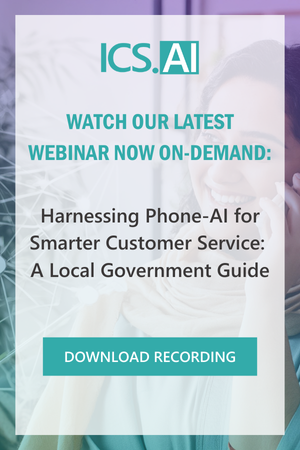Ofwat
|
|
Regulators and industry drive plans to step up support for vulnerable consumers
- Cross sector data sharing will see Priority Services Register (PSR) information shared securely between energy and water firms
- Suppliers, consumer groups and regulators came together yesterday to boost action on protecting vulnerable consumers in a changing market
- Ofgem research suggests 40% of households could access PSR support, but have not signed up
- Ofwat research suggests 17% of households are not aware that water PSR support exists and would like to sign up
Vulnerable customers will be able to access support services more quickly and easily, thanks to a project driving forward priority services register (PSR) data-sharing between energy and water companies.
At a summit that was held yesterday, Ofgem and Ofwat brought together suppliers, customer groups and experts to work towards a transformation in customer service culture across energy and water – especially for vulnerable customers.
The regulators are challenging the sectors to consider customer service through the eyes of the customer. This will ensure that suppliers’ day-to-day services are easy for everybody to engage with, alongside addressing the impact of service failings on customers who need extra help.
Cross sector Priority Services Register data sharing changes will also reduce the burden on households to disclose their circumstances to multiple organisations across the two sectors, as PSR information will be shared more easily between them.
This means some of the most vulnerable households across the UK will receive vital support offered by energy suppliers, water companies, and network operators – including priority support in an emergency and advance warning on planned energy or water supply interruptions – even if only one organisation was provided with the required information.
So far, all distribution network operators (DNOs) and water companies have actioned the necessary changes required to begin the data sharing agreement, while eight energy suppliers covering 85 percent of consumers have also completed the change. Work is now underway to ensure the necessary steps are taken so changes can be implemented in full for all consumers.
Jonathan Brearley, Ofgem chief executive, said:
“It has been, and continues to be, an incredibly difficult time for many households. So it’s vital that we work together to challenge ourselves to offer better support – sharing learnings from across all sectors and driving meaningful change.
“The data sharing progress we have seen in the energy and water sectors demonstrates what is possible, but we know more can be done. We need a ‘tell us once’ model that operates across multiple sectors, so people are supported holistically.
“We’ll continue to work closely with government, consumer groups and charities, and industry to make sure we are there for vulnerable consumers, this winter and beyond.”
David Black, chief Executive of Ofwat, said:
“Whatever the sector, utilities must put customers at the heart of their decision-making. The challenges posed by the cost of living crisis are not going away – and every effort is required to make sure those who need extra help are given the support they need.
“We’ve ensured water companies have affordability plans and vulnerability strategies in place. The enhanced use of data across utilities is already supporting this for both financial and non-financial matters. But it isn’t just a numbers game or about names on a list.
“There must be a sustained push to make sure the right level of support is provided. We are making it clear that we are ready to collaborate on the solutions that ensure the right support is always being provided to customers in need at the right time.”
Ofwat earlier this year implemented a customer-focused licence condition to hold companies to account, supplemented by vulnerability guidance, Service for All. Ofwat has also required all water companies to develop vulnerability strategies setting out their plans to enhance support.
Ofgem has also published a consultation on its Consumer Vulnerability Strategy, which explores what action can be taken in the short term to improve consumer experiences amid a backdrop of rising bills. The strategy also explores the longer-term solutions for supporting vulnerable consumers as the market evolves and we move towards net zero.
The regulator is proposing to focus on four key areas to support vulnerable consumers, which include:
- Improving identification and smarter use of data – so vulnerable consumers can be easily identified and better understand the support available.
- Supporting those struggling with bills – So customers can easily understand billing information, and receive compassionate and consistent support when they are struggling.
- Driving forward customer service improvements – so communication from energy companies is tailored, and does not exclude people based on their circumstances.
- Encouraging positive and inclusive innovation – so all consumer can access inclusively designed and innovative solutions, particularly as we transition to net zero.
Ofgem is inviting views from all stakeholders, in particular consumer groups, charities, network companies and energy suppliers, before the consultation closes in November.
Notes to Editors
You can view Ofgem’s Consumer Vulnerability Strategy in full here: Refreshing our Consumer Vulnerability Strategy | Ofgem
Ofgem’s Consumer impacts of market conditions survey: wave 5 (January to February 2024), from which the statistic relating to households that can access PSR comes, can be found here: Consumer impacts of market conditions survey: wave 5 (January to February 2024) | Ofgem
Ofwat’s Service for all vulnerability guidance is available here: Service for all vulnerability guidance – Ofwat
Original article link: https://www.ofwat.gov.uk/regulators-and-industry-drive-plans-to-step-up-support-for-vulnerable-consumers/
.gif)

